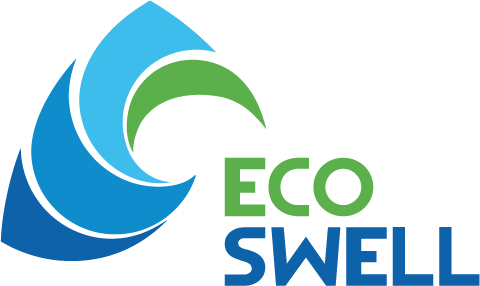Environmental Restoration through Goat Herding
Natural Wisdom
Before embarking on my trip to EcoSwell, I spent quite a bit of time on the website constructing a vision of my soon-to-come experience on the hot, arid coast of Northern Peru – endless waves, endless ceviche, the amazing opportunity to learn from a culture I’m not familiar with, and of course, enriching reforestation work. Goat herding was not included in that vision. A few short weeks later, though, I found myself looking around the interior of a van as I sped down a dirt road past various oil drills, some mars-like rock formations, and a steadily increasing population of goats.
Diego, one of EcoSwell’s directors, had invited me to accompany him on a goat herding expedition in the nearby towns of Sichez and Folchez, a fascinating inland livestock-centered counterpart to the artisanal fishing- and surf-fueled town of Lobitos. How goat herding was related to reforestation, I had no idea.
Still, with an enthusiastic smile on my face, I lathered on my sunscreen, ate my pre-goat herding banana, and set off with a group of about 5-10 people on their daily walk with their goats. The lively morning conversation slowly tapered off as people split away from the group to follow their individual herds, and after a few minutes Diego and I were left with just two goat herders, or pastores.
“No google search will give you the kind of ecological wisdom that these pastores could.”
Herding Goats for Natural Resources
We began to ask questions – which plants do the goats prefer? Do they follow the same path every day? Importantly, how has the practice of goat herding changed since this area underwent extreme deforestation and desertification? As they helpfully and enthusiastically answered our questions, I slowly began to understand why we were here – these pastores walked the land every day, were familiar with not only every plant species we saw, but every individual plant, and understood the connection that themselves and their animals had to the land; The health of the Earth was the health of their goats, which was their own health. No google search will give you the kind of ecological wisdom that these pastores could.
What we found was that goat herding is a microcosm of the natural cycles of the ecosystem found here – as grazers till the earth with their hooves and fertilize it with their dung, plants are given better conditions for growth, thereby continuing the exchange of nutrients between plants and animals. In the Tropical Dry Forest, where most of the native grazers were driven to extinction thousands of years ago by human presence, Diego believes that working with the pastores to herd their goats in ways that more accurately reflect natural patterns will help reverse desertification and restore the ecosystem. Essentially, to coexist with nature, we must do our best to become a part of it.
Giving Back to the Earth
I’ve now been at EcoSwell for about three months and learned immensely from the pastores, but also from relying more directly on nature myself. In American society, we tend to view our resources linearly; they come into our lives form sources we don’t have much awareness of, we use them, and while we may have some vague idea of where they’re going, they completely leave our lives once we’re done with them. Here, we nourish and tend to our plants every day, use what our garden gives us for practical purposes every day, and work to produce compost for our garden every day. I’m constantly reminded that the resources I’m using have come from the Earth, so I’m motivated to give those things back to the Earth in a healthy way that helps it continue providing. Essentially, I’ve been taught to view my resources circularly. Despite having always been an environmentally conscious person with a basic understanding of this concept, only once I adopted a lifestyle in which I directly depended on nature was I able to intimately understand the ways nature depends on me and truly respect the needs of our Earth.
As I prepare to move on from EcoSwell, I’ve been constructing another vision of what I want my future to look like – one in which I maintain the mindset towards nature I’ve found here. Even though there’s not much of a goat herding presence back home, I’m optimistic that I can continue strengthening my ties to the Earth. Starting a garden and composting food to nourish it, picking up hobbies like foraging, or doing activities that depend on a healthy environment, like surfing or skiing, are all ways to remind ourselves of the circular relationship we have with Earth. Hopefully, through creating these ties to the environment, I’ll someday have the deeper and more direct relationship with it that the pastores do.
“Through creating these ties to the environment, I’ll someday have the deeper and more direct relationship with it that the pastores do.”





